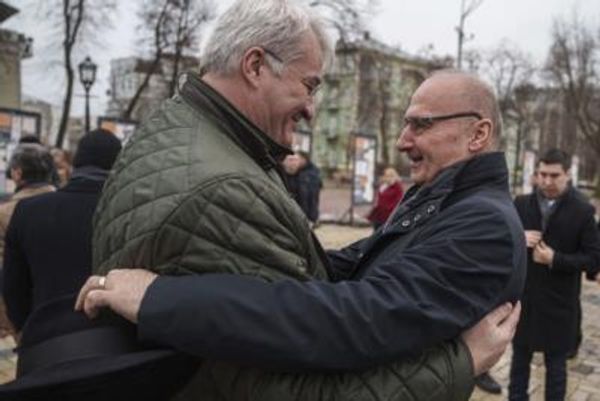
Kimana (Kenya) (AFP) - In a Kenyan reserve near Africa's highest mountain, Maasai youths on Saturday swapped traditional lion hunts for a series of sporting events to test and display their prowess and strength.
For generations, Maasai warriors had to kill a lion as part of the "Olamayio" rite to prove their skills, identify their leaders, and attract girlfriends.
But as the numbers of lions in Kenya plummeted from about 30,000 in the 1970s to just over 2,000 today, community leaders and conservation group Big Life Foundation created the "Maasai Olympics" a decade ago to replace hunting with sport.
Draped in colourful costumes and sporting beads, dozens of athletes took part in the fifth edition of the biannual event.
The competition in Kimana reserve, near Mount Kilimanjaro, drew some 160 participants, including 40 women and is credited with playing a stellar role in lion conservation.
"It has dropped lion killing to near zero," in the region, Tom Hill, co-founder of the Big Life Foundation, told AFP.
"There are only 23,000 lions left in Africa and the figure is declining," he warned.
The sanctuary where the games are held is part of the famed Amboseli–Tsavo ecosystem and near the Tanzanian border.
The games are a "good way to preserve our lands," said 30-year-old Joseph Lekatoo, who has been competing since 2012.
Esther Sereya, 20, agreed, adding: "We are learning a lot about the animals."
Lions are sometimes hunted for attacking livestock, Hill said, adding that the foundation has a fund to compensate herders.
The games saw participants sprint on a hard dirt track for distances ranging from 100 metres (328 feet) to 5,000 metres.
Other competitions have been adapted to local customs: wooden clubs known as 'rungus' and used to ward off hyenas are used instead of discuses in throwing events.
In a revisited high jump event, the goal is to leap into the air to touch a rope with the top of one's head, like the traditional Adumu dance performed at ceremonies.
'Now I hunt medals'
Since its inception, the event has been sponsored by David Rudisha, a two-time Olympic champion and world record holding sprinter who is also Maasai.
"We are doing this event for conservation," he said.
Elder Maasai men were all praise for the games.
"I killed two lions when I was young," 66-year-old herder Lenkai ole Ngola told AFP.
"But today, it is important to protect them, because their numbers are declining and also because they provide jobs for young people, he said, referring to tourism.
Lions are threatened by poaching as well as an unprecedented drought affecting Kenya.
Following several failed rainy seasons, the land on the Kimana reserve is scorched due to the worst drought in the area in 40 years.
The winners of the various events do not receive medals but are rewarded with cattle, scholarships or money.
Lekatoo, who won the javelin throw, said: "Now, I am hunting the medals, I am not hunting lions."







